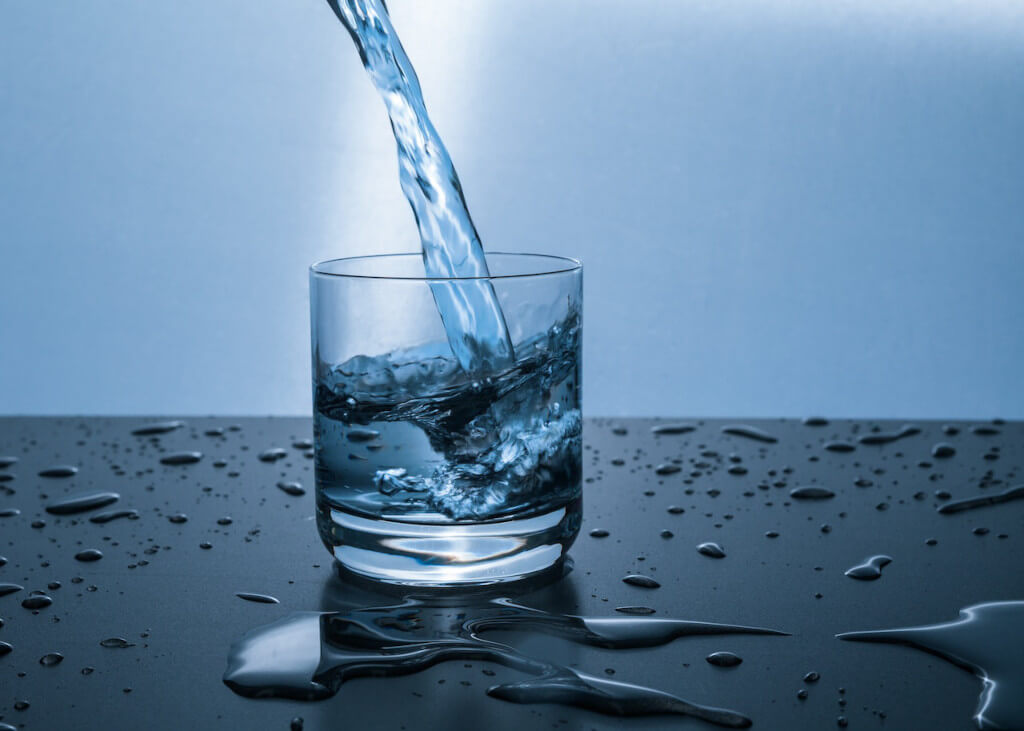Maintaining the right level of hydration is critical to both the efficacy of your work and your overall health. Due to the fact that water makes up approximately 65 % of the human body, drinking water is the best way to replenish the body’s fluids. It serves a number of important functions, including the removal of waste, the maintenance of proper body temperature, and the lubricating of joints. In addition to this, it acts as a factor in the healing process by transporting hormones and nutrients to the organs via the bloodstream and by assisting in the recovery from injuries.
When You Don’t Drink Enough Water, You May Get Dehydrated
This indicates that your body requires additional liquid in order to function properly. There are a variety of symptoms that can indicate you may be dehydrated. They are as follows:
- Confusion
- Symptoms such as lightheadedness or dizziness
- The mouth is dry
- An extreme lack of thirst
- Headache
- Small amounts or no urine
- No tears were shed when weeping
- drowsiness or a state of exhaustion
- Urine with a deeper color than is typical
In point of fact, water offers an incredible variety of advantages, whether it is used for consumption or for recreational purposes. In addition, we have preferences regarding the temperature of the water that we drink; is it warm or cold?
There are a handful of discussions that have been going on for years regarding what temperature is optimal for optimal hydration. It is common practice to ignore this issue. Therefore, it is only appropriate to emphasize the risks that are involved. Let us delve into it!
The Risks of Consuming cold water
If you have been doing rigorous exercise and are feeling overheated, this is an excellent drink to consume after your workout; drinking it will help you lose weight more efficiently. According to the findings of one study, drinking cold water may be directly responsible for or contribute to the development of headaches.
In a number of studies, consuming cold water might cause the mucous in your sinuses to become more viscous, making it more difficult to drain the mucus out of your system. When it comes to satisfying your thirst during the hot summer months or soon after you get home from work, there is nothing quite like a tall glass of ice water.
Despite this, the vast majority of people are under the impression that it is not important to pay attention to the temperature of the water they are receiving. There are a lot of people who are unaware of the fact that drinking cold water actually poses more risks than it does benefits. Maintaining optimal hydration is still a requirement. The negative effects that drinking cold water can have on your health are outlined in the following paragraphs.
Causes Constipation
Constipation is one of the potential side effects of drinking cold water on a regular basis. Consuming cold water causes the meal to set and become more solid as it travels through the digestive tract. Constipation is characterized by a contraction of the digestive organs, which is one of the primary causes of the condition. It has been found through research that the digestive process cannot function properly without water that is consumed while it is at room temperature.
Causes Soreness in the Throat
In the same way that a chilly winter day can cause your nose to run and your sinuses to become clogged, drinking really cold water can have the same effect on your body. As a result, in order to warm any chilly air or fluid that is consumed, your body produces mucus, which acts as a natural humidifier within your body. The important aspect is that this physical response is unnecessary due to the cold water, and it creates considerable bodily fluid (mucus) to build up in your pipes, which in turn causes your throat to feel sore.
Slows Down One’s Heart Rate
According to the findings of clinical studies, consuming cold water slows the rate of one’s heartbeat and stimulates the nerve that governs the involuntary activities of the body. The vagus nerve is the nerve in question. In addition, the nerve plays an important role in the functioning of the neurological system. The lower temperature of the water has a direct impact on the vagus nerve, and this results in a gradual slowing of the heart rate over the course of the experiment. In other words, in the event of an emergency, your heart rate will gradually decrease until your body temperature reaches an appropriate level of equilibrium. This is not particularly beneficial for the heart because it can bring on additional problems that are associated with the heart.
Helps Prevent the Breakdown of Fat
Consuming ice cold water immediately following a meal has an effect on the breakdown of fat. This occurs because low internal temperatures cause lipids to solidify and become more rigid, which makes it more challenging for the body to digest the fats. If you want to get the most out of drinking water after a meal, you should wait at least half an hour after eating before starting to drink it, regardless of the temperature of the water you consume.
Should We Alternately Consume Warm or Hot Water Instead?

According to the information presented above, it has been shown that drinking cold water can help satisfy your thirst, particularly during dry and hot seasons; yet, doing so can have serious adverse effects on your health. Therefore, the best choice for you would be to consume water that is warm or hot.
However, it does come with a significant negative, and that is the flavor. On the other hand, there are techniques to add flavor to drinking water. In light of this fact, there are a number of important benefits that drinking warm or hot water can have on your body system, including the following:
- Because warm water activates naturally occurring digestive enzymes, your digestion will end up being substantially more efficient than it would have been otherwise.
- When you sip warm water, you will significantly hydrate yourself more quickly than you would otherwise.
- Your blood gets purer and cleaner when it’s exposed to warm water.
- Increases the efficiency of your body’s naturally occurring detoxification mechanisms.
- Increases the amount of blood that flows to your digestive organs, which in turn assists in warding off heartburn and reducing constipation.
- Your lessened desire for sweets as a result of switching to warm water has assisted you in maintaining a healthy weight.
By increasing the amount of blood that flows to the tissues, drinking warm water has been shown to be beneficial in the treatment of certain types of pain, including menstrual cramps, headaches, joint problems, and even muscle sprains.
When is the Optimal Time to Drink Water That Has Been Warmed?
If you want to get the full benefits of drinking warm water, the best time to do it is first thing when you wake up in the morning. This helps to get your digestion going in the morning so that it may function at its best throughout the day. Drinking warm liquids with your meals is another good option because it helps keep things liquid and protects your inside organs from damage. Additional benefits that come from drinking warm water include increased blood flow and improved circulation overall.
